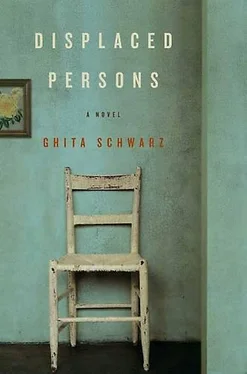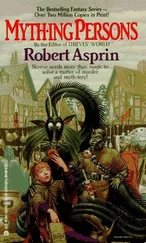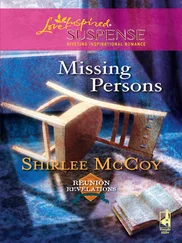I have a joke, a good joke, said Lily. You know, Dovid, what I told you in the car.
Too dirty, said Dovid, shaking his head. Too dirty.
Chaim sat back in the chair, his belly expanding with milky tea. In the documentary, a young black boy had come to visit his relatives in the South and made a flirtatious remark to a white girl. White men had come to his uncle’s house in the night and demanded that the uncle give up the boy. The son of the uncle had told the tale for the film cameras, and he had skipped the most terrible portion, the portion where the uncle, faced with the guns and the threat that every person in the house would be killed, had gone up to retrieve the child, sleeping, at peace in his soft bed. The boy had been taken and killed, and the case had become something large. The trial had been famous, newspapers had declaimed, politicians had made speeches, but that small moment, the moment where the uncle was forced to deliver a child of his family, that was erased. Too terrible to speak it, the uncle’s moment of obeying the murderers.
Chaim couldn’t fault it. A story was supposed to end in triumph. And facts? Sometimes it seemed pointless, all this documentation. What did it serve? The world did not change.
Still he had been impressed with the mother of the murdered boy in the documentary. In an act of great innocence, the innocence of thinking that anyone cared, she had given to the newspapers the photograph of her mutilated son. Anyone who knew anything knew the photograph would do nothing. And yet, in this one case, something happened. Men were arrested and tried. The killers went free, of course they went free; but they went free with the whole country watching their escape, the whole country implicated in their freedom. To want to have justice, one had to be unrealistic. One had to make a fantasy out of one’s observations and pursue the fantasy as if it were real, as real as a piece of bread or a warm home.
IN THE CAR, WITH Chaim driving home, Sima put her hand on his lap. What do you think about it?
Hmm? said Chaim. Soon after the Germans came to the small town he was born in, they ordered each family to bring one young male to the square to be hanged. The head of each family had to choose, and all the members of the family had to watch. Chaim had been ten years old. The lot had fallen to his eighteen-year-old brother, no longer a boy, but not yet married and responsible for a wife and children. It was the only decision that made sense. Sense. That was what the soldiers did: they made the victims into killers, into perversions of their own stories, five hundred Abrahams leading their sons to the sacrifice. Chaim did not look at the face of his brother, who had had to wait more than half the day for his turn. He looked at the boy next to his brother, a neighbor he did not know well, whose red curls, blowing lightly in the fall wind, flopped and waved over his ears. The crowd had been oddly quiet-or perhaps that was just the way he remembered it-and Chaim had wondered if the redheaded boy had been able to hear his mother’s weeping while he waited.
I said, What do you think about it?
He knew what Sima meant, but still he asked: About what?
Chaimke, you know.
I don’t think I can do it.
Think of Lola-something to give to her. To her children.
They were at a red light. Chaim looked at Sima. She was taking the earrings out of her ears, and in the reflection from the streetlights he could see that they were red, sore from the pressure.
To tell you the truth, Sima continued, I had called them before. Fela gave me the number. She turned to face him.
Fela didn’t even do it herself!
So? Pavel did. I made an appointment for next Saturday. After Lola leaves, when we have time.
He looked at the road.
Of course we can cancel it, she murmured. She dropped the earrings into her purse, ran her hand over her hair. Hmm, Chaim? Ten years from now we’ll be glad we did it.
THE SPIELBERG PEOPLE WERE to arrive at the house at 10 a.m. Sima had cleaned until nine in the night on the Friday, in honor of the apartment’s capture on film. Then she had stayed up three more hours, writing notes for herself, to make sure she touched on certain points for the video. Sima would go first, then Chaim after lunch. She sent Chaim out for fresh food soon after the men came in, set up the umbrellas they used to control light, arranged Sima in the center of the dark red couch.
Chaim had his paper on the bus, but he couldn’t read it; he looked out the window instead, at the women in T-shirts and long skirts wheeling their toddlers in heavy blue strollers, at the broad young men bouncing home from a morning at the gym. The neighborhood had changed. A kosher butcher’s was now a real estate office. A bookstore was now a pharmacy. The specialty food store, a fixture for immigrants and striving middle-class families as long as Chaim had lived in the United States, had expanded to cover almost the whole block.
On Saturdays it was filled with young professionals packing up ready-made foods for their after-work dinners. He went first to the fish counter. Sam, Sam, the smoked-fish man, Lola would sing as a girl. Sam was old already, bent at the neck, his once-round face now thin and spotted, but he still called out to Chaim, casually, to let him skip in front of the others on line. When Lola was a child Sam would give her slices of pickle, when the store was small and the fish counter was the centerpiece. Sima would take fish cut only by him; Sam reminded her of her father, and in any case he was the only man who really cared to make the slices so thin they could dissolve in the mouth. Chaim had once asked Sam for a cut of Scottish salmon that had been on sale. Sam had refused: he cut only American fish. The smell of the salmon through the wax paper mixed with the odor of meats at the deli counter, absorbed into the saliva in his mouth, trickled down his chest. A throb of fear fluttered through his abdomen.
There had been a fight with Lola, just before she left for California, about the Spielberg film. Sima had gotten upset.
“So even Schindler’s List is not good enough for you?”
“I didn’t say that, Ma. I said there were problems. Why does everything have to be so extreme? I mean, let me have an opinion for chrissake!”
“I see. Now we have Jesus Christ involved.”
“You know what I mean.”
“No, I don’t know what you mean. What do you think, that Germans understand already? You may think so, you may have friends, what do I care. But they do not understand.”
“All I’m saying is-it’s cheesy. Cheesy! Why do they have to make the guy such a hero, with the Jews all little mice? And that ending, with them singing a Zionist song. It was like it was all worth it to create the state of Israel, practically! It grossed me out. I heard in Israel they cut that part out-the propaganda was too naked for them. People can understand subtler things, Ma. They can.” Lola’s voice was beginning to shake, losing its authority-almost plaintive.
“So tell me, Lola, how should people understand? Only on Lolatime? Only with Lola-language?”
Lola stood up from the kitchen table. “It’s a beautiful day, I’m going out.”
Sima turned to Chaim, silently sipping his tea. “Just like her father, marching out in the middle of an argument!”
Why do you look at me? Chaim answered in Yiddish. I didn’t say anything!
Exactly. You did not say a thing.
I do not say anything because there is no reason to fight over something like this. A movie!
But how she answers me!
Yes, yes, but you provoke her, Sima.
I provoke her? I provoke her? You hear what she says to me, Chaim. Sima was pale, her eyes bright. But no tears were in her eyes. “Yes, Ma, you care about homelessness here, but what about Arabs being evicted in East Jerusalem? Yes, Ma, you say this. Yes, Ma, you say that.” But let me ask you, Chaimke, do you think she feels superior only to me, not to you too?
Читать дальше











